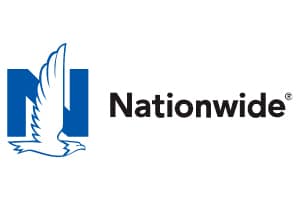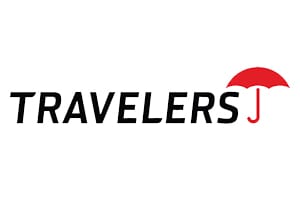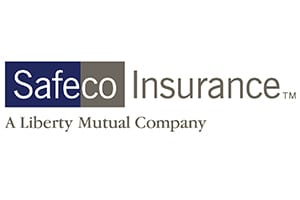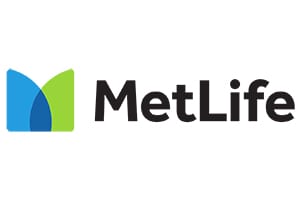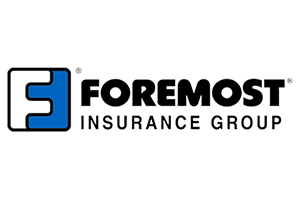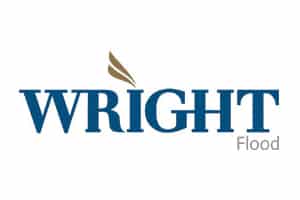Florida’s beautiful landscapes and warm climate make it an attractive destination for Canadian property owners, whether for vacation homes, rental properties, or retirement plans. However, owning property in Florida comes with unique challenges, particularly when it comes to securing adequate property insurance. The state’s susceptibility to hurricanes, flooding, and other natural disasters has made property insurance a complex and often costly endeavor.
This article will provide a comprehensive overview of Florida property insurance, focusing on the challenges, available options, and important considerations for Canadian property owners.
The Challenges of Insuring Property in Florida

Increased Risk of Natural Disasters
Florida is one of the most hurricane-prone states in the U.S., with its long coastline and low elevation making it particularly vulnerable to storms and flooding. According to the National Oceanic and Atmospheric Administration (NOAA), Florida has been hit by more hurricanes than any other state, with the Atlantic hurricane season posing a significant threat every year from June through November.
The frequency and severity of these storms have led to higher insurance premiums and, in some cases, difficulty in obtaining coverage. Insurance companies face substantial risk in Florida, and as a result, they often impose stringent requirements, higher deductibles, and exclusions for certain types of damage.
Uninsurable Areas and the Decline of Insurance Providers
In response to the increased risk, some areas in Florida are becoming “uninsurable.” These are regions where the likelihood of severe damage is so high that insurance companies are unwilling to offer coverage. Coastal areas, in particular, are at risk of becoming uninsurable, leaving property owners with limited options.
Additionally, the number of insurance providers willing to operate in Florida has decreased. Over the past few years, several major insurers have either reduced their presence in the state or exited the market entirely. This has led to a shrinking pool of available insurance options and has driven up costs for homeowners who must seek coverage from a limited number of providers.
Average Costs of Property Insurance in Florida

The average cost of homeowners insurance in Florida is among the highest in the United States. As of 2024, the average annual premium for a standard homeowners insurance policy in Florida is approximately $4,200, which is nearly three times the national average. However, costs can vary significantly depending on factors such as location, the age and condition of the home, and the level of coverage required.
For Canadian property owners, it’s essential to budget for these higher insurance costs, especially if the property is located in a high-risk area. Additionally, factors such as proximity to the coast, elevation, and the building’s construction materials can all influence insurance rates.
Hurricane Insurance: What You Need to Know

Understanding Hurricane Coverage
Hurricane insurance is not a standalone policy but is typically included as part of a standard homeowners insurance policy in Florida. However, it’s important to note that while most policies cover damage caused by wind and hail (common during hurricanes), they often exclude flood damage, which requires separate coverage.
Hurricane deductibles are also a key consideration. Unlike standard deductibles, which are usually a fixed dollar amount, hurricane deductibles are typically a percentage of the home’s insured value, ranging from 2% to 10%. For example, on a home insured for $500,000 with a 5% hurricane deductible, the homeowner would be responsible for the first $25,000 in damages before the insurance coverage kicks in.
Preparing for Hurricane Season
Given the high risk of hurricanes, Canadian property owners should take proactive steps to mitigate potential damage and ensure adequate insurance coverage. This includes regular maintenance and upgrades to the property to make it more resilient to storms, such as installing impact-resistant windows, reinforcing the roof, and securing outdoor structures.
Additionally, property owners should review their insurance policies annually, particularly before the start of hurricane season. It’s crucial to understand the specific coverage limits, deductibles, and exclusions related to hurricane damage.
Flood Insurance: Essential Coverage for Florida Property Owners

The Necessity of Flood Insurance
Flooding is one of the most common and costly natural disasters in Florida, yet it’s often not covered by standard homeowners insurance policies. Given Florida’s flat terrain and proximity to water bodies, even properties located outside of designated flood zones can be at risk of flooding.
For Canadian property owners, flood insurance is an essential part of protecting their investment. The National Flood Insurance Program (NFIP) offers flood insurance policies to property owners in participating communities, with coverage limits of up to $250,000 for the structure and $100,000 for contents. However, for high-value properties, additional coverage through private insurers may be necessary.
Average Costs of Flood Insurance
The cost of flood insurance in Florida varies based on factors such as the property’s location, elevation, and flood risk. On average, NFIP flood insurance policies in Florida cost around $700 per year. However, premiums can be significantly higher for properties located in high-risk flood zones or coastal areas.
Canadian property owners should be aware that there is typically a 30-day waiting period before flood insurance policies take effect. Therefore, it’s important to secure coverage well in advance of hurricane season or any anticipated flooding events.
Insurance Providers and Options in Florida

State-Supported Insurance Options
Given the challenges in the private insurance market, the state of Florida offers several insurance options for property owners who are unable to obtain coverage through private insurers. The most notable of these is Citizens Property Insurance Corporation, a state-run insurer of last resort.
Citizens Insurance provides coverage for homeowners who cannot find insurance in the private market due to their property’s location, age, or other risk factors. While Citizens can be a valuable resource for those struggling to find coverage, it’s important to note that their policies may come with higher premiums and limited coverage options compared to private insurers.
Private Insurance Providers
Despite the challenges, there are still private insurance providers operating in Florida, offering a range of coverage options for homeowners. These insurers typically assess the risk of individual properties and may offer customized policies that cater to specific needs, such as high-value homes or properties with unique risk factors.
For Canadian property owners, working with an insurance agent who specializes in Florida real estate can be beneficial. These agents can help navigate the complexities of the market, identify the best coverage options, and ensure that all necessary protections are in place. Canada to USA owns and operates a licensed insurance agency called Cross Border Insurance focused on helping Canadians secure U.S. property insurance in all 50 states.
Excess and Surplus Lines Carriers
In some cases, homeowners may need to turn to excess and surplus (E&S) lines carriers, which are insurance providers that operate outside of the traditional, regulated insurance market. E&S carriers are often willing to take on higher-risk properties that standard insurers might reject, offering specialized coverage options for unique or challenging risks.
While E&S carriers can provide essential coverage, their policies are often more expensive, and they are not subject to the same regulatory oversight as standard insurers. Canadian property owners considering this option should carefully review policy terms and conditions and work with an experienced insurance professional to understand the risks involved.
Important Considerations for Canadian Property Owners

Cross-Border Insurance Challenges
Canadian property owners face additional challenges when securing insurance for Florida properties, particularly when it comes to understanding the differences in insurance regulations, policy structures, and terminology between Canada and the U.S.
One key difference is the role of state regulation in the U.S. insurance market. Unlike in Canada, where insurance is regulated at the federal level, U.S. insurance is regulated by individual states. This means that insurance requirements, coverage options, and regulatory protections can vary significantly from one state to another.
Additionally, Canadian property owners may encounter challenges related to securing financing if property insurance is not available in a specific area.
Ensuring Adequate Coverage
To protect their investment, Canadian property owners should prioritize obtaining comprehensive insurance coverage that addresses the specific risks associated with Florida properties. This includes not only standard homeowners insurance but also additional coverage for floods, hurricanes, and other natural disasters.
It’s also important to review and update insurance policies regularly, particularly as property values and risk factors change. Working with an insurance agent at Canada to USA who understands the unique needs of Canadian property owners can help ensure that all necessary protections are in place.
Preparing for Emergencies
Given the high risk of natural disasters in Florida, Canadian property owners should have a well-thought-out emergency plan in place. This includes securing insurance coverage, maintaining a list of emergency contacts, and having a plan for property management and repairs in the event of a disaster.
For properties used as vacation homes or rentals, it’s also important to establish protocols for guests and tenants in case of an emergency. This might include providing information on evacuation routes, emergency supplies, and contact details for local authorities and property managers.
Conclusion: Protecting Your Investment in Florida
Owning property in Florida offers many benefits, from beautiful weather and recreational opportunities to potential financial gains through vacation rentals or real estate appreciation. However, the state’s unique risks—particularly related to natural disasters—require careful planning and comprehensive insurance coverage.
For Canadian property owners, understanding the challenges of the Florida insurance market and taking proactive steps to secure adequate coverage is essential to protecting their investment. By working with knowledgeable insurance professionals at Canada to USA and Cross Border Insurance, staying informed about policy options, and preparing for emergencies, Canadian property owners can enjoy the many advantages of owning property in Florida while mitigating the risks associated with the state’s dynamic environment.
Contact the Canada to USA insurance team below to get a free online quote for your U.S. property or U.S. registered vehicles.
U.S. Home Insurance for
Canadians Owners ![]()
Home | Flood | Liability | Umbrella | Auto Bundles
Canadian’s who own U.S. real estate property must carry the proper liability, flood, and insurance coverage to ensure you are not at risk. We provide Canadians with the best rates and products from all the top carriers to ensure you have the proper coverage and liability protection as a non-resident property owner in the United States.
We are the #1 resource Canadians rely on for all their U.S. property insurance needs!

